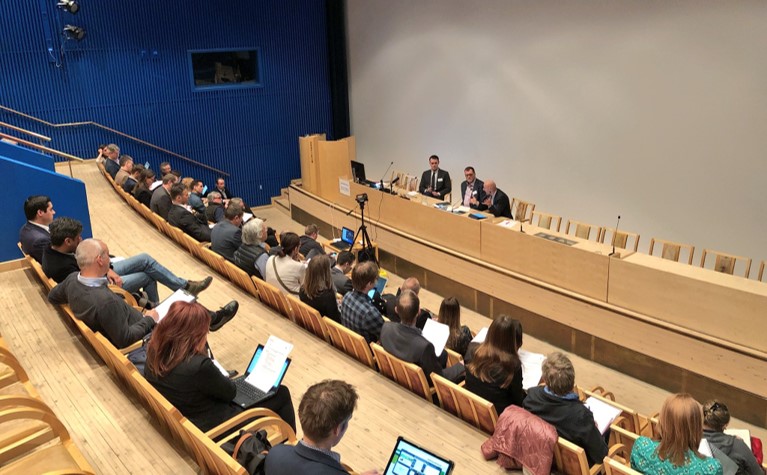
SLO experiences from across the globe - 1st MIREU SLO workshop
- Tue, 11/12/2018
The first MIREU Social Licence to Operate (SLO) workshop with the theme Linking SLO and Sustainability: challenges in Europe and lessons from abroad was organised in Rovaniemi, Finland, between 8-9 May 2018. The workshop sought to understand what sustainability – social, environmental, and economic - looks like across Europe’s mining regions and how SLO both reflects this understanding and furthers it. The workshop consisted of a variety of conversations, story-telling and discussion topics, through which we explored international SLO guidance and practices from countries across the globe; the challenges facing junior mining companies in Europe and whether there are practical solutions; SLO as a driver of innovation; and at how emphasising the link between the coming energy transition and necessary ramp-up in minerals and metals production can change the negative perception of mining pervasive throughout much of Europe.
In one of our panel discussions, the panellists discussed the concept of SLO and shared experiences of SLO from different parts of the world. The discussion amongst the international panellists brought the audience many insights into SLO practices and the success of SLO guidelines in countries like Australia, Chile and Canada.
Daniel Franks from the ACP-EU Development Minerals Programme at the UNDP reminded that the concept of SLO came from the mining industry itself, and that it essentially means the relationship between the productive process and communities that live around the process. According to Franks, the relationship between the community and a mining company is more important for gaining legitimacy than any social development accompanying a mining operation. But how can today’s mining companies create such relationships with the people living around the mining operations? According to Michael Hitch from the University of New South Wales, it is important for mining companies to understand the respective roles and responsibilities between the surrounding communities and the companies themselves, in order to create successful relationships. These relationships are therefore also imperative for the social licence.
Ian Thomson from Shinglespit Consultants, Inc. emphasised the importance of local-level, project-based SLO, as opinions concerning the mining industry are not influenced by best practices of companies, but by the problems created by the lowest performing units. According to Thomson, the most important elements that contribute to SLO are stakeholders’ perceptions of contact quality and procedural fairness, i.e. the degree to which they think that their concerns and interests are being protected, and how they see themselves in relation to the process - whether they can influence the way a project or a company affects their lives or not.
Comments